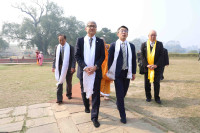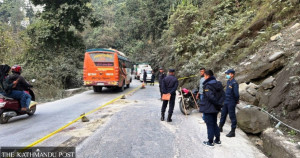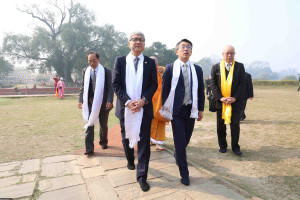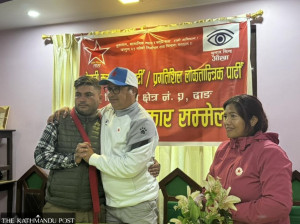Lumbini Province
Holidays at whim: That’s the way for local governments
Local units often come up with own ways of declaring holidays, at times with reasons that defy logic.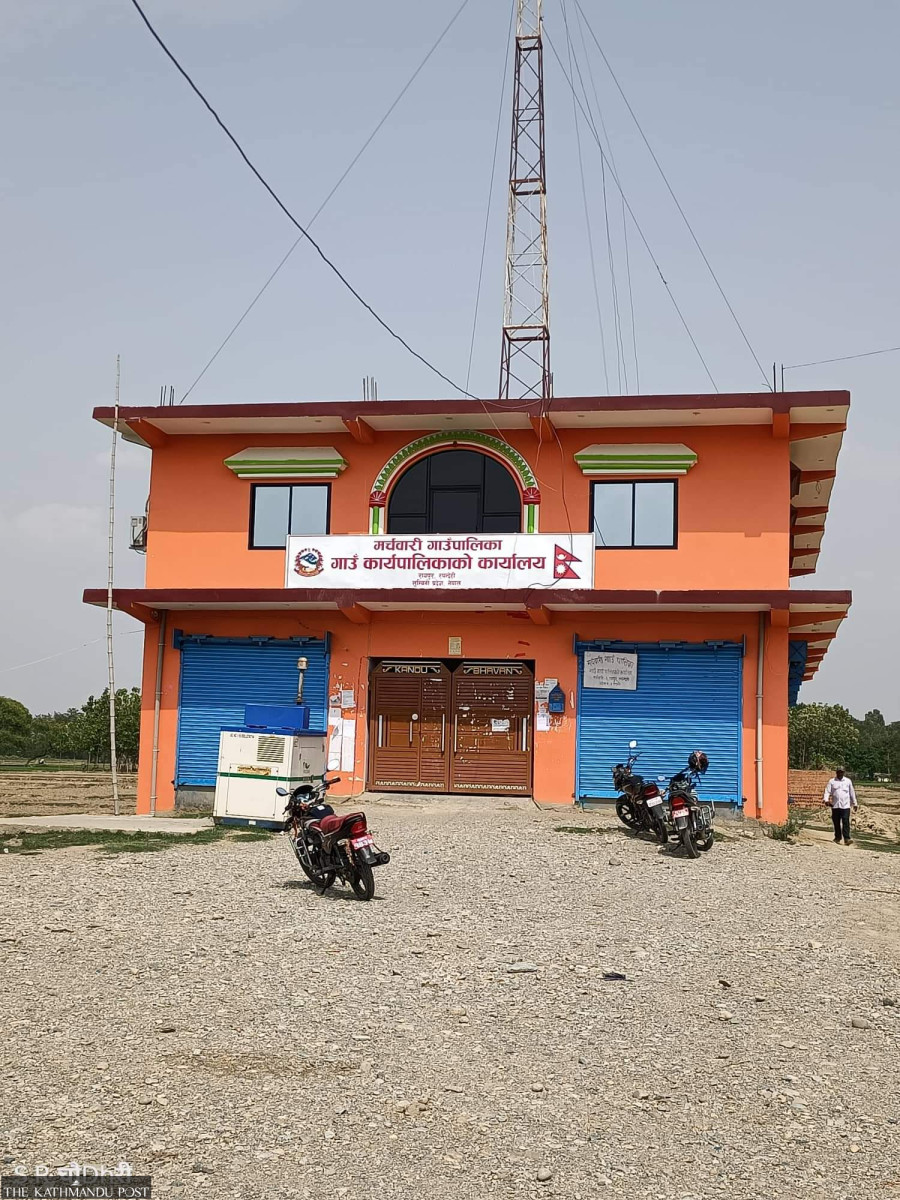
Sanju Paudel
When it comes to declaring public holidays, Nepal’s federal government’s frivolity was evident from its recent decision to announce and then roll back the two-day weekend.
After announcing Sundays as public holiday, besides the Saturdays, on April 26, in an apparent bid to reduce the consumption of petroleum products in the wake of rapidly depleting foreign exchange reserves, the government on June 6 rolled back the decision. It faced criticism from various quarters for its flippant decision-making with many saying government officials tend to impose ideas without proper study.
But such haphazard public holiday decisions are not limited to the federal government alone.
Municipalities and rural municipalities over the years have come up with their own ways of declaring public holidays, at times with such reasons that defy logic, observers say.
On Sunday, a rural municipality in Raipur of Rupandehi of Lumbini province declared a public holiday after a relative of its vice-chairperson died.
Issuing a notice, Marchawari Rural Municipality chair Gaya Prasad Barai said that all government offices, schools and other organisations would remain closed to mourn the death of a brother-in-law of the rural municipality’s vice-chair Asha Singh.
Singh’s “brother-in-law” died in a road accident on Sunday, says the notice.
Expressing condolences to the family of the deceased, the rural municipality has said all schools, government offices and other organisations would remain closed on Sunday.
Marchawari Rural Municipality is one of the 10 rural municipalities in Rupandehi district in Lumbini.
According to its website, it is one of the most under-developed rural municipalities, with a population of 38,776 as per the national census 2011.
“Since everyone from the rural municipality is going to attend the funeral, we decided to close the offices,” said Barai.
On November 17 last year, Ramgopalpur Municipality in Mahottari of Madhesh Province decided to close all government offices and schools for a day because CPN (Maoist Centre) chair Pushpa Kamal Dahal was to inaugurate a function in the municipality as chief guest on that day.
Issuing a notice a day before, then Mayor Ashok Kumar Mandal said since the Maoist chair and former prime minister Dahal would be inaugurating primary health centres in Wards 2, 3, 4, 6, 7, 8, and 9, a public holiday had been declared for November 17.
In August last year, Menchhayayem Rural Municipality in Tehrathum district declared closure of ward offices and schools for a day after the vice-chair's father-in-law died.
According to onlinekhabar.com, the holiday was declared after Krishna Prasad Gautam, the father-in-law of vice-chair Gita Devi Timsina, died.
Upon inquiry, the rural municipality’s chair Yadav Bahadur Khapung said he decided to announce the holiday as authorised by the Local Government Operation Act, the news website reported.
“It is the vice-chairperson’s father-in-law whose house is close to the rural municipality office. Hence, the municipal officials will join the funeral procession,” he told onlinekhabar. “Hence, we announced a holiday.”
When Rupani Rural Municipality in Saptari district declared a public holiday on May 22, it was not to mourn anyone’s death or welcome any politician from Kathmandu.
It was to celebrate the victory of new office bearers of the municipality in the May 13 local elections.
A notice issued by chief administrative officer Aravind Kumar Chaudhary said all government offices, schools, public institutions and health facilities “will remain closed, as per the order of the newly elected chair Dinesh Kumar Yadav, on May 22, to celebrate the victory of new office bearers in the May 13 elections”.
Some local governments, however, have come under public scrutiny for various other outlandish reasons.
Even though the federal government had announced a two-day holiday by publishing a notice in the Nepal Gazette, Gorkha’s Barpak Sulikot Rural Municipality decided not to follow the decision.
Bishnu Bhatta, the rural municipality chair, said that a meeting decided to continue with public holidays on Saturdays only.
According to the rural municipality, since schools had just resumed in-person classes after two years due to Covid-19, the decision to implement the two-day holiday was not justified.
And there was yet another notice by a ward office in Khotang recently that caught people’s attention.
The office of Ward 10 of Halesi Tuwachung Municipality sought to replace the female ward secretary with a male one.
In a letter undersigned by Ward 10 Chairman Arjun Kumar Puri, it called for replacing Sushila Dahal, who had been working as ward secretary at Arkhaule ward office, with a male official citing “difficulties in providing services.”
Dahal was appointed ward secretary after her predecessor was transferred to another office.
The ward office, citing the decision of a ward committee meeting, said that since the ward is the biggest in the municipality in terms of area and population and has to deal with a massive workload following the election of new people’s representatives, including providing additional services including vital registration, and online distribution of social security allowance from Nawalpur once a week, “a female ward secretary cannot effectively deliver the services”.
“As per the decision of the ward committee meeting held on June 14, we urge [the municipality] to make arrangements for a male ward secretary,” the letter reads.
Although Nepal is among a few countries with a higher number of public holidays per year, some communities are still calling for adding a few more holidays for various occasions, including local festivals.
Though local government representatives say they declare public holidays as authorised by Local Level Operations Act, there is no such provision per se, while it does authorise many decisions on its own.
Khim Lal Devkota, a National Assembly member and expert on federalism, says he is not aware of any legal provision allowing local governments to announce holidays for any specific event.
“Such authority should not be given to local governments as it would promote the culture of declaring holidays in a haphazard manner while people may be deprived of urgent and essential services,” Devkota told the Post.
“I think provinces have been given certain rights to announce province-centric holidays considering the culture and tradition of particular communities in the province which is necessary too. Essentially, national standards should be followed on holidays.”
The Local Government Operation Act-2017 does not specifically speak about the authority to declare holidays.
According to Devkota, the trend of announcing holidays on the death of someone close to a local official or the arrival of a senior leader of a party would set a bad precedent.
“It has not been many years since local governments came into being under the federal set-up,” said Devkota. “It is time to strengthen local governments and promote good governance practices.”
Nepal became a federal republic through the 2015 constitution. The 2017 elections elected three tiers of government—federal, provincial and local.
After completing the first cycle, local elections were held on May 13 to elect a new set of representatives.
Prithvi Man Shrestha contributed reporting.




 13.12°C Kathmandu
13.12°C Kathmandu


